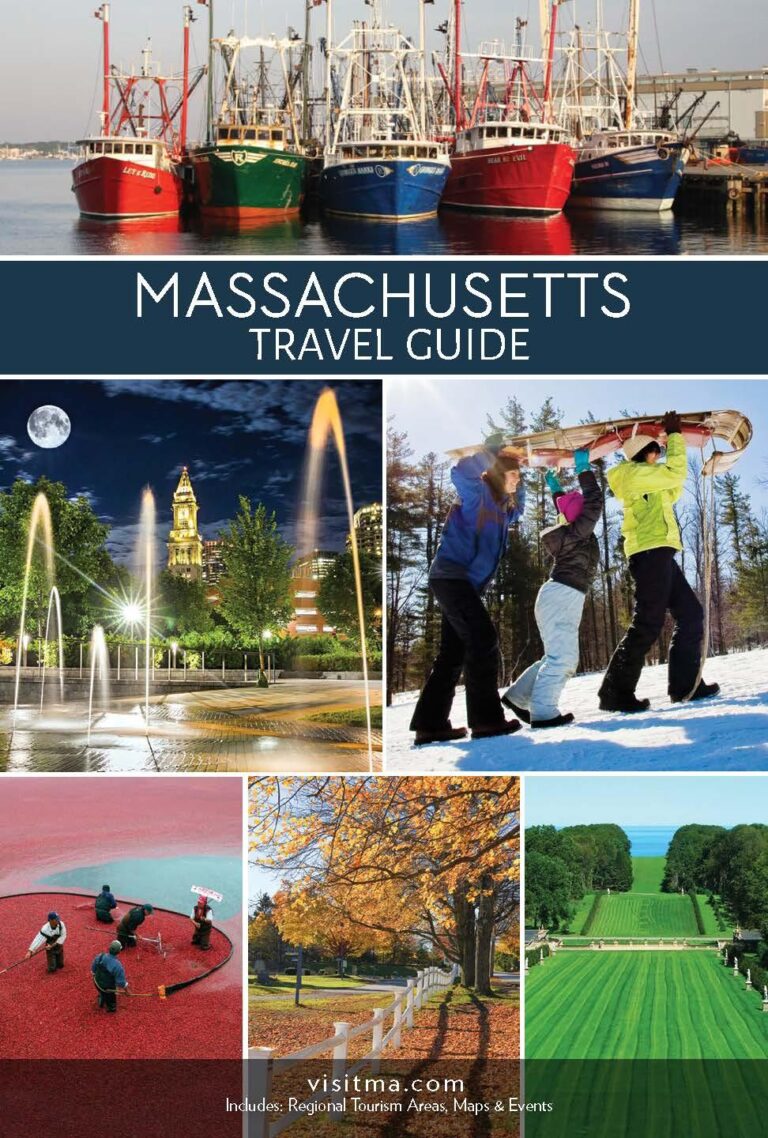As Massachusetts emerges from the challenges of the past few years, its tourism and hospitality sector is poised for a robust rebound in 2024. With a rich blend of historical landmarks, vibrant cultural scenes, and picturesque landscapes, the Bay State continues to attract millions of visitors annually. Industry experts forecast a year of steady growth, driven by renewed consumer confidence, strategic marketing initiatives, and expanded infrastructure. This article delves into the key trends, economic drivers, and anticipated challenges shaping Massachusetts’ tourism and hospitality outlook for the year ahead.
Table of Contents
- Massachusetts Tourism Recovery Accelerates Amid Evolving Traveler Preferences
- Economic Impact and Employment Trends Within the Hospitality Sector
- Sustainable Tourism Initiatives Gain Momentum Across the Bay State
- Strategic Recommendations for Stakeholders to Capitalize on Growth Opportunities
- In Conclusion
Massachusetts Tourism Recovery Accelerates Amid Evolving Traveler Preferences
Massachusetts is experiencing a noteworthy rebound in its tourism sector, spurred by shifting traveler expectations that prioritize authentic, local experiences over traditional sightseeing. Industry experts highlight a surge in demand for culturally immersive activities, from farm-to-table dining in Berkshire to interactive history tours in Boston’s Freedom Trail. This pivot reflects a broader trend where visitors seek meaningful connections that showcase the unique heritage and natural beauty of the Bay State.
Tourism professionals emphasize the importance of adapting to new traveler preferences, which include:
- Eco-friendly accommodations that align with sustainability goals
- Technology-enhanced experiences such as virtual tours and mobile concierge services
- Personalized itineraries tailored to individual interests and wellness
- Local artisan markets and community events that foster engagement
With these adaptive strategies, Massachusetts is poised not only to recover pre-pandemic visitor numbers but also to redefine its tourism landscape for a resilient and vibrant future.
Economic Impact and Employment Trends Within the Hospitality Sector
Massachusetts continues to be a formidable force in the hospitality industry, significantly bolstering local economies across the state. The sector’s contributions extend beyond direct tourism revenue, fostering a ripple effect that benefits ancillary businesses such as retail, transportation, and cultural venues. Recent data reveals that hospitality generates over $25 billion annually, reinforcing its role as a cornerstone of Massachusetts’ economic vitality. Urban centers like Boston have seen a surge in investment, with expansion projects aimed at enhancing visitor experiences and accommodating the increasing influx of domestic and international travelers.
Employment opportunities within the industry remain robust, reflecting a dynamic landscape shaped by technological advancements and evolving consumer preferences. Key trends include:
- Growth in specialized roles such as eco-tourism coordinators and digital concierge services, highlighting an adaptation to contemporary expectations.
- Increased focus on diversity and inclusion in hiring practices, ensuring a workforce representative of Massachusetts’ vibrant communities.
- Rising demand for skilled labor in both front-line and managerial positions, fueled by the expansion of boutique hotels, culinary ventures, and event venues.
Industry stakeholders anticipate that these employment patterns, combined with ongoing investments, will catalyze sustainable growth, positioning Massachusetts as a leading hospitality hub well into the future.
Sustainable Tourism Initiatives Gain Momentum Across the Bay State
Across Massachusetts, a wave of innovative sustainable tourism initiatives is reshaping the visitor experience while prioritizing environmental stewardship. From Cape Cod’s pioneering zero-waste programs to Boston’s expansion of green transit options, local governments and businesses are collaborating to reduce carbon footprints and promote responsible travel practices. These efforts not only attract eco-conscious tourists but also help preserve the state’s rich natural landscapes and historic sites for future generations.
Key strategies gaining traction include:
- Electric shuttle services connecting popular destinations to decrease reliance on personal vehicles.
- Community-led conservation projects involving tourists in local habitat restoration and clean-up activities.
- Certification programs for hotels and attractions meeting strict sustainability standards.
Such initiatives signal a broader shift within Massachusetts’ tourism sector, emphasizing long-term resilience and environmental responsibility as vital components of economic recovery and growth heading into 2024.
Strategic Recommendations for Stakeholders to Capitalize on Growth Opportunities
To unlock the full potential of Massachusetts’ tourism resurgence, stakeholders must prioritize innovative partnerships between local government, hospitality businesses, and cultural institutions. Emphasizing collaboration on marketing campaigns that highlight the state’s unique historical assets and emerging culinary scenes can create a more cohesive visitor experience. Additionally, investing in technology-driven solutions, such as AI-powered personalization tools and contactless services, will enhance visitor convenience while catering to evolving consumer preferences.
Further, recognizing the growing demand for sustainable and experiential travel offers a strategic edge. Industry leaders are encouraged to develop and promote eco-friendly accommodations and authentic, immersive local experiences that resonate with environmentally conscious travelers. This includes support for community-based tourism projects that stimulate economic benefits at the grassroots level. Complementing these efforts with robust data analytics to monitor visitor trends ensures that resource allocation remains agile and responsive to market shifts.
In Conclusion
As Massachusetts continues to navigate the evolving landscape of tourism and hospitality in 2024, industry stakeholders remain cautiously optimistic. With robust visitor numbers, strategic investments, and a renewed focus on sustainability, the state is well-positioned to capitalize on emerging trends and challenges alike. However, addressing workforce shortages and adapting to changing traveler expectations will be critical to sustaining growth. For Massachusetts, the year ahead offers both opportunities and tests as it strives to maintain its status as a premier destination on the East Coast.

